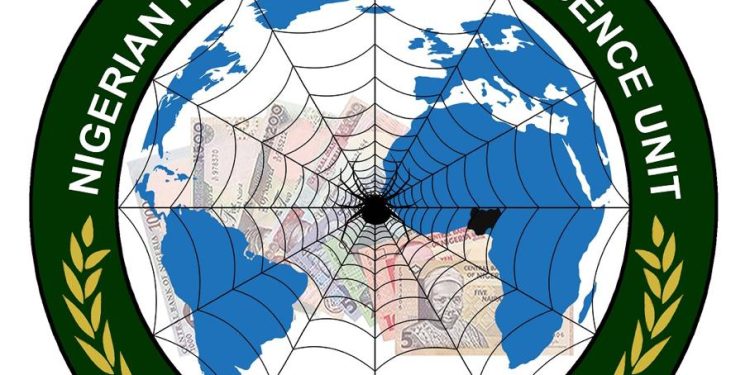By Nkechi Eze
In what has been widely hailed as a landmark achievement for Nigeria’s financial governance and international reputation, the Financial Action Task Force (FATF) has officially removed Nigeria from its grey list of jurisdictions under increased monitoring. The historic announcement was made during the FATF October 2025 Plenary held in Paris, France, marking a triumphant conclusion to nearly two years of intensive reforms aimed at strengthening the country’s anti-money laundering and counter-terrorism financing (AML/CFT) systems.
The delisting represents a major leap forward for Nigeria’s global financial standing, symbolizing renewed investor confidence, restored credibility, and validation of the country’s commitment to transparency, accountability, and integrity in its financial system.
Nigeria had been placed on the FATF grey list in February 2023 after the international watchdog identified strategic deficiencies in its AML/CFT framework. In response, Nigeria embarked on an ambitious 19-point Action Plan developed in partnership with the FATF and its regional counterpart, the Inter-Governmental Action Group Against Money Laundering in West Africa (GIABA). Over the past two years, the country demonstrated extraordinary determination to close identified gaps, enact robust legal reforms, and build strong institutional capacity across agencies responsible for financial intelligence, law enforcement, and regulatory oversight.
In an official statement, the Director and Chief Executive Officer of the Nigerian Financial Intelligence Unit (NFIU), Ms. Hafsat Abubakar Bakari, disclosed that the FATF’s decision to delist Nigeria was based on verifiable progress and sustained compliance with global standards. She explained that the achievement was the result of legislative, institutional, and operational reforms that have repositioned Nigeria as a credible player in the global financial system. Among the key milestones were the enactment and enforcement of the Money Laundering (Prevention and Prohibition) Act, 2022 and the Terrorism (Prevention and Prohibition) Act, 2022, which provided a strong legal foundation for the country’s anti-financial crime framework.
Nigeria also operationalized its Beneficial Ownership Register, a landmark step toward corporate transparency and accountability. The reforms strengthened inter-agency coordination and improved the supervision of both financial institutions and Designated Non-Financial Businesses and Professions (DNFBPs), ensuring that the nation’s financial system remains resilient against criminal exploitation.
At the FATF Plenary in Paris, Nigeria was represented by a high-level delegation comprising the Honourable Attorney-General of the Federation and Minister of Justice, the Honourable Minister of Finance and Coordinating Minister of the Economy, the Honourable Minister of Interior, and the Director/Chief Executive Officer of the NFIU, Ms. Bakari.
Speaking on behalf of Nigeria, the Minister of Finance, Mr. Wale Edun, described the country’s delisting as both a vindication of Nigeria’s reform journey and a renewed call to action. “Nigeria’s ambition was never limited to simply completing the Action Plan and exiting the grey list,” he said. “Our focus has been on driving reforms, enacting legislative enhancements, and strengthening institutions to ensure Nigeria effectively counters money laundering and terrorist financing. For us, the Action Plan was not the ceiling, but the floor of our aspirations.”
Mr. Edun emphasized that the journey was about more than technical compliance—it was a demonstration of Nigeria’s resolve to embed integrity and accountability into governance and economic management. He reaffirmed that the reforms reflect the broader national transformation agenda under the leadership of President Bola Ahmed Tinubu, aimed at positioning Nigeria as a trusted global financial partner and a model of institutional resilience.
Also speaking, the Attorney-General of the Federation and Minister of Justice, Prince Lateef Fagbemi (SAN), expressed Nigeria’s appreciation to the FATF for recognizing the country’s progress and extending an invitation to join the Guest Jurisdictions Initiative. Through this initiative, Nigeria represented by the NFIU will participate under its own flag in FATF meetings for the next year, contributing to international discussions on Anti-Money Laundering, Counter-Financing of Terrorism, and Counter-Proliferation Financing (AML/CFT/CPF) standards. He described the gesture as “a mark of international confidence in Nigeria’s expertise and readiness to play an active role in shaping the global financial integrity landscape.”
For the NFIU, which coordinated the national reform roadmap, the achievement is a testament to collective resolve and inter-agency cooperation. Ms. Bakari described the delisting as “a true test of our resilience, coordination and unwavering commitment to reform,” adding that it “sends a clear signal to the world that Nigeria can meet and exceed global standards in financial integrity.” She noted, “This is not the end of our journey, but the beginning of a stronger, more transparent financial ecosystem.”
Ms. Bakari expressed profound gratitude to President Bola Ahmed Tinubu, GCFR, for his leadership and strategic direction, and to Vice President Kashim Shettima, who represented the President during the FATF assessment team’s high-level visit to Nigeria. She also acknowledged the Secretary to the Government of the Federation, members of the Federal Executive Council, the National Assembly, the Judiciary, and the heads of all agencies under the National Task Force and the Inter-Ministerial Committee on AML/CFT for their unwavering commitment to the reform process.
According to her, Nigeria’s success reflects a “whole-of-government and whole-of-society” approach that engaged public institutions, the private sector, and civil society in strengthening compliance and promoting financial transparency. “This victory belongs to all Nigerians, those in public service, in the private sector, and in civil society, who worked tirelessly to ensure our nation’s financial system reflects integrity, transparency, and accountability,” she said.
Ms. Bakari further called for sustained vigilance and continued reforms to preserve Nigeria’s leadership position on the continent, urging stakeholders to consolidate on this success. “We must not rest on our laurels,” she cautioned. “Our responsibility now is to maintain this momentum and ensure Nigeria remains a beacon of financial integrity in Africa and beyond.”
In a wider African context, the October 2025 FATF Plenary also approved the removal of Burkina Faso, Mozambique, and South Africa from the grey list, a development that signals a collective advancement in the continent’s financial integrity framework. The NFIU congratulated the delegations from these countries and expressed readiness to deepen regional cooperation in tackling illicit financial flows and promoting sustainable economic growth.
Nigeria’s exit from the FATF grey list is not merely a bureaucratic milestone, it is a symbol of renewed international confidence, a validation of sustained institutional reforms, and a statement that Africa’s largest economy has both the will and capacity to uphold global standards of financial governance.
As the nation turns this new chapter, the message resonates far beyond the FATF Plenary Hall in Paris: Nigeria is not just compliant, it is committed; not just delisted, but determined to lead by example in the global campaign for transparency, accountability, and sustainable prosperity.
















